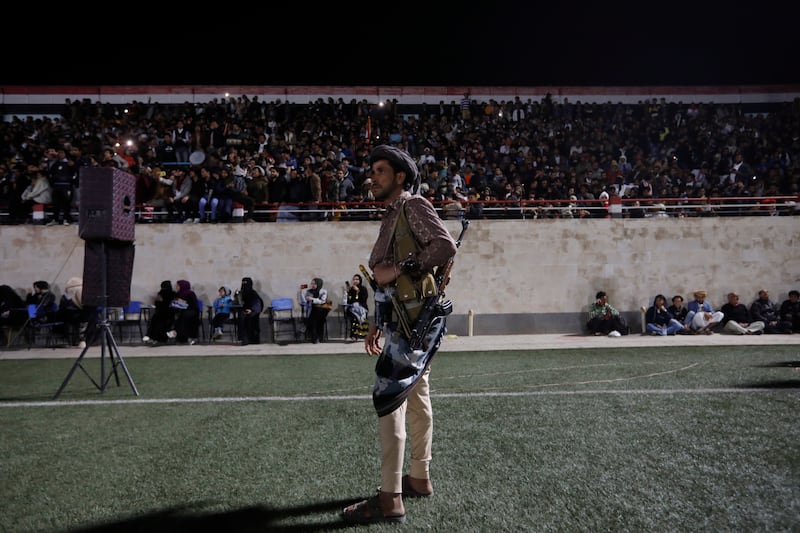For years, Saudi Arabia has been under attack. According to the latest figures, as of Sunday, Yemen’s Houthi rebel group has launched 430 ballistic missiles, 851 drones and 100 explosive-laden boats at Saudi territory since 2015. For seven years, then, Saudis have had to live with, on average, four attacks a week.
Many are thwarted, but those that break through can have terrible consequences. In 2019, strikes on the Khurais oil field and Abqaiq production facility disrupted nearly half the kingdom's output, equivalent to 5 per cent of the global rate. Just this Saturday, two people died and seven were injured in a missile attack carried out by the Houthis on the southern city of Jizan.
The day after the attack, Brig Gen Turki Al Malki, spokesman for the Saudi Arabia-led coalition supporting the internationally recognised Yemeni government, presented new evidence that Lebanon's Hezbollah movement has sent experts to train Houthi fighters in the assembly and launch of ballistic missiles and drones. One video shows a Hezbollah commander speaking to Abu Ali Al Hakim, the Houthi head of intelligence, about the group's campaign to seize the Red Sea port of Hodeidah – from which the majority of the country's aid imports enter – despite a UN-mediated truce for the group to cede control of the city.
This complicates an already complicated picture for Yemen. Approaching eight year's of civil war, the country's security situation is already murky enough. The exact nature of Iran's support of Houthi rebels is hard to pin down, as is knowledge of the group's ultimate goals and commitment to diplomatic efforts at de-escalation.
The ambiguity presents an ideal context for Hezbollah to exploit. Indeed, its activities in Yemen would not be the first time it has posed a direct threat to Saudi security. At various points this year, Riyadh has banned certain Lebanese imports after they were used to smuggle the illegal drug Captagon. Hezbollah is thought to play an important role in the regional drug trade. And more bans came into place in September when former Lebanese information minister George Kordahi, who is sympathetic to Hezbollah, expressed support of the Houthis and criticism of Saudi-led forces fighting them.
The mounting regional threat posed by the group is not being lost on the international community. In a recent visit to Riyadh, French President Emmanuel Macron and Saudi Arabia's Crown Prince Mohammed bin Salman held a phone conversation with Najib Mikati, Lebanon's Prime Minister, to discuss getting through reforms to which factions such as Hezbollah are so often opposed. And in November, Australia listed Hezbollah in its entirety as a terrorist organisation. In Yemen, pushing back against an asymmetric alliance between three of the region's most destabilising forces – the Houthis, Hezbollah and Iran – will require more such international engagement.
In the video shown at the press conference, a Hezbollah commander tells Al Hakim, the Houthi intelligence chief: “Our project is bigger than these disputes. We left everything and came to stand with you. The Syrian war is about to end, and most of the mujahideen will come to Yemen.”
The war in Syria and the extremism it unleashed is a security and humanitarian disaster for the world, not just the country's neighbours. Saudi Arabia is presenting more evidence that Yemen could be on a similar trajectory. Its warnings must be heeded.





